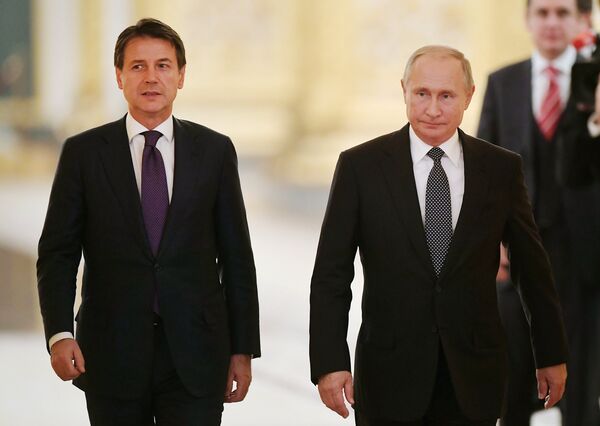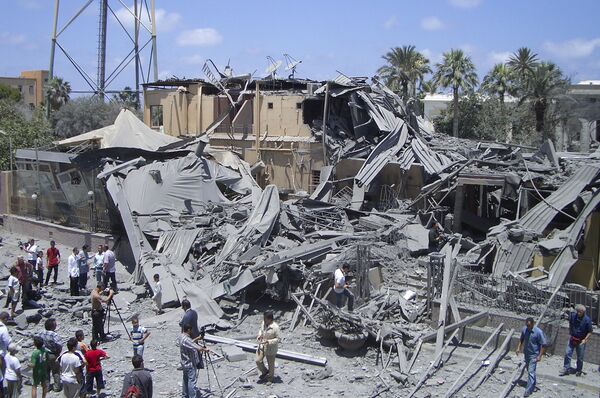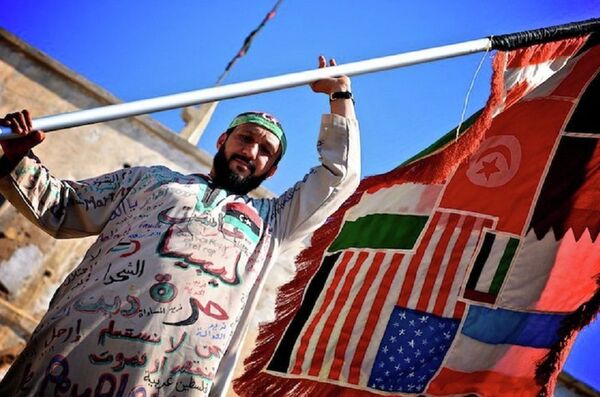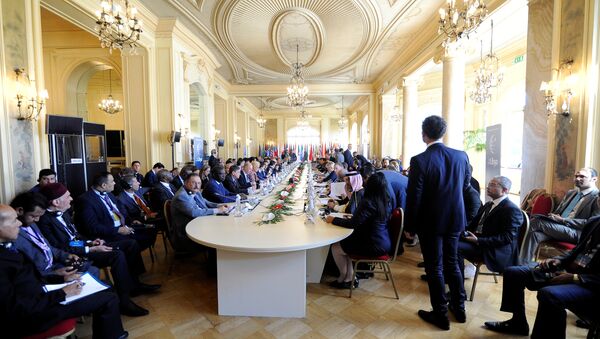The summit's opening on Monday morning was highly inauspicious, setting a calamitous tone — not long after it concluded the next afternoon, former Italian prime minister Matteo Renzi dubbed the conference "a resounding flop", and questioned Rome's credibility in respect of foreign policy.
Italian Prime Minister Giuseppe Conte had intended to use the event to cement his country as the pivotal Western power broker in Libya. Rome and Paris have wrestled for the mantle for some time, and French-Libyan conferences held over 2018 — Italian representatives weren't invited, or even notified in advance — have done much to rile the former.
Leaders AWOL
However, for reasons unclear, Conte couldn't turn up to his own coronation on time, arriving several hours after proceedings commenced in the middle of the afternoon — although his Foreign Minister Enzo Moavero Milanesi didn't turn up at all, instead flying to Brussels for a meeting with EU representatives.
Similarly absent were US President Donald Trump, Russian President Vladimir Putin, French President Emmanuel Macron and German Chancellor Angela Merkel, despite Conte scheduling the meeting to follow weekend armistice ceremonies in France, in the hope the weighty quartet would fly from Paris to Palermo, rather than just straight back home. While the presence of Field Marshal Khalifa Haftar, head of the Libyan national army, was widely promoted in advance, question marks hovered over his attendannce until the very moment he arrived on the evening of the first day.

Still, UN Secretary General Antonio Guterres, EU High Representative for Foreign Affairs and Security Policy Federica Mogherini, Egyptian President, Abdel Fatah al-Sisi, and Russian Prime Minister Dmitry Medvedev were present.
On the agenda was the scheduling of elections, and finessing the details of a national reconciliation conference, aimed at securing lasting settlement between Libya's two rival governments in the east and west of the conflict-stricken country.
The last meeting between Libyan and French leaders held in May concluded with representatives agreeing to a December 10 election — now, UN special envoy for Libya Ghassan Salame has suggested the vote will be held between March and June.

Still, the exactitudes of the election remain opaque, contingent on the outcome of the national conference — it's not even clear whether the election will be parliamentary or presidential. Even the location of the national conference is similarly up in the air, with Salame merely saying it would "preferably" take place in Libya itself — an implied lack of commitment that greatly irritated members of Libya's internationally recognised house of representatives.
Nonetheless, it was the special envoy's condemnation of the house of representatives as "time-wasting" and "[resisting elections] at all costs" that infuriated the body the most, leading them to call for his dismissal.
Definitely Maybe
Somehow though, out of this fractious morass Haftar and political rival Prime Minister Fayez Serraj, head of the Tripoli-based Government of National Accord, both expressed verbal support for the UN's action plan, lending a degree of legitimacy to the prospect of both a national conference and subsequent elections.
Some observers are sceptical, however. Frederic Wehrey, senior fellow at the Carnegie Endowment for International Peace, told The National that while Italy "certainly achieved a good photo op", the country lacked the clout to forge a true international, regional and Libyan consensus.
"The abrupt departure of Turkey, a key player in Libya, demonstrates this, as does a French Foreign Ministry statement which barely disguises the rivalry with Italy and tries to portray the Palermo meeting as a continuation of the Paris summit," he explained.

Indeed, a spoken agreement to hold a conference somewhere as yet undetermined to decide upon an election of uncertain type at a rough future date is far from concrete concord — and the UN's other key objectives, such as stifling corruption, enduring national reconciliation, disbanding — or at disarming — the various militias and merging the two rival central banks operating in Libya, remain highly intangible. Not even a vague, prospective resolution has been proposed for any of these interlinked issues, much less been orally acquiesced to by either side in the conflict.
The various international players evidently still battling for pole position in the country likewise remain at loggerheads on these issues — although given it was their intervention in 2011 that plunged the country into the catastrophic political and economic crisis it finds itself enmeshed in today, perhaps it's time for them to recognise they've done enough damage, and leave the Libyans be.

